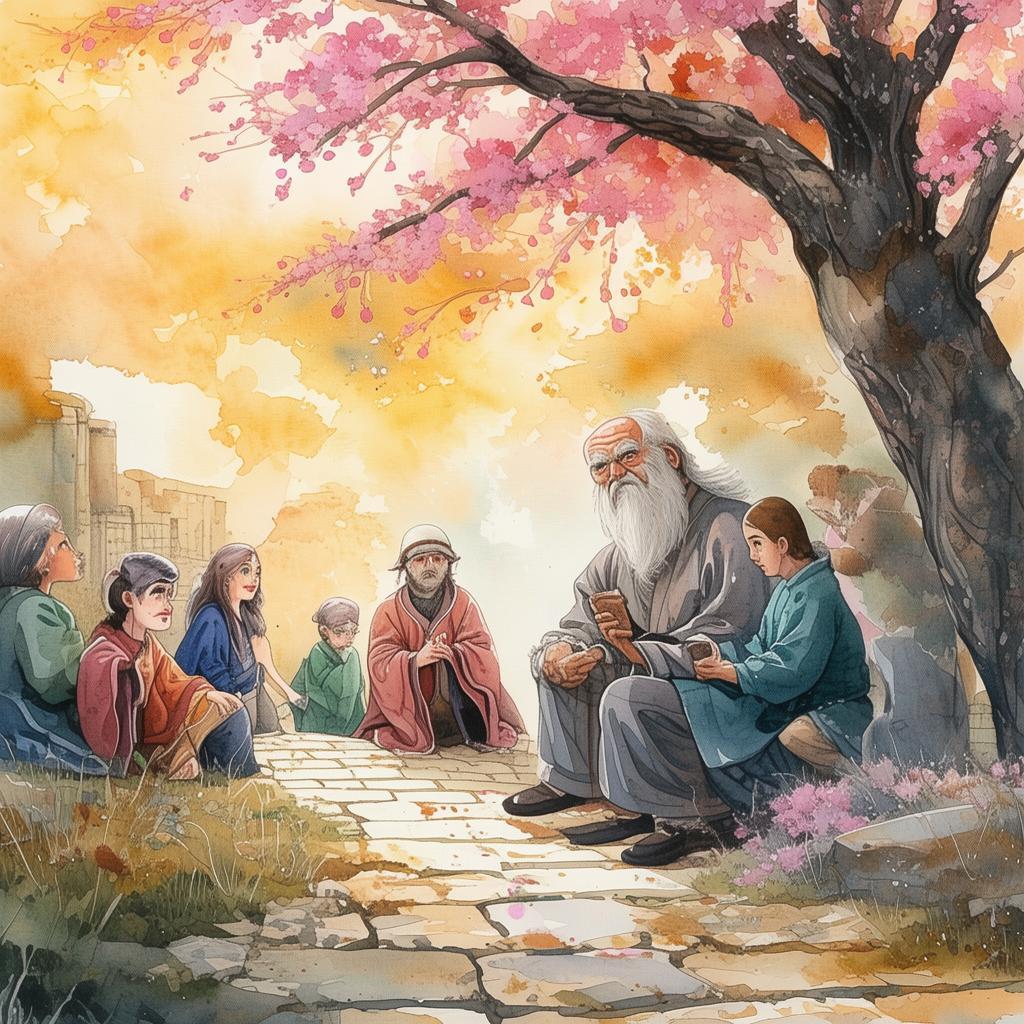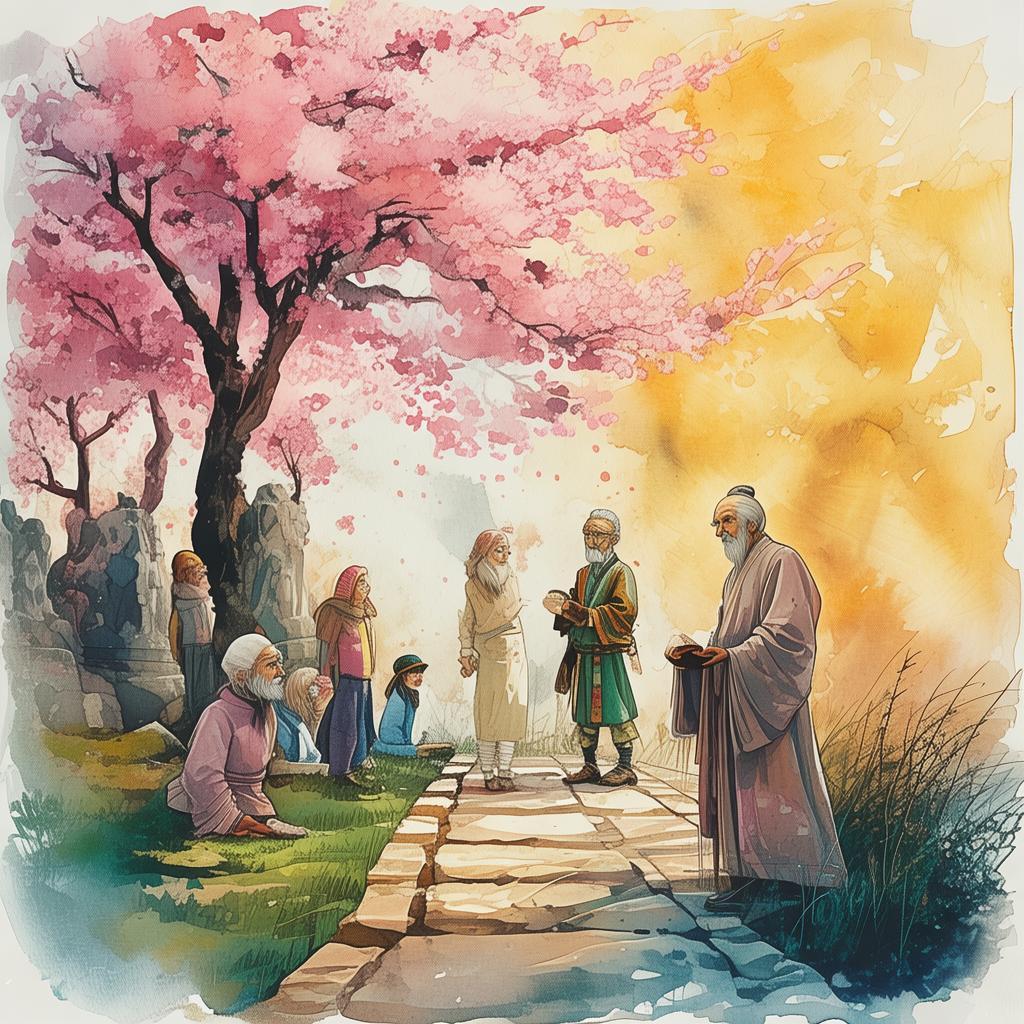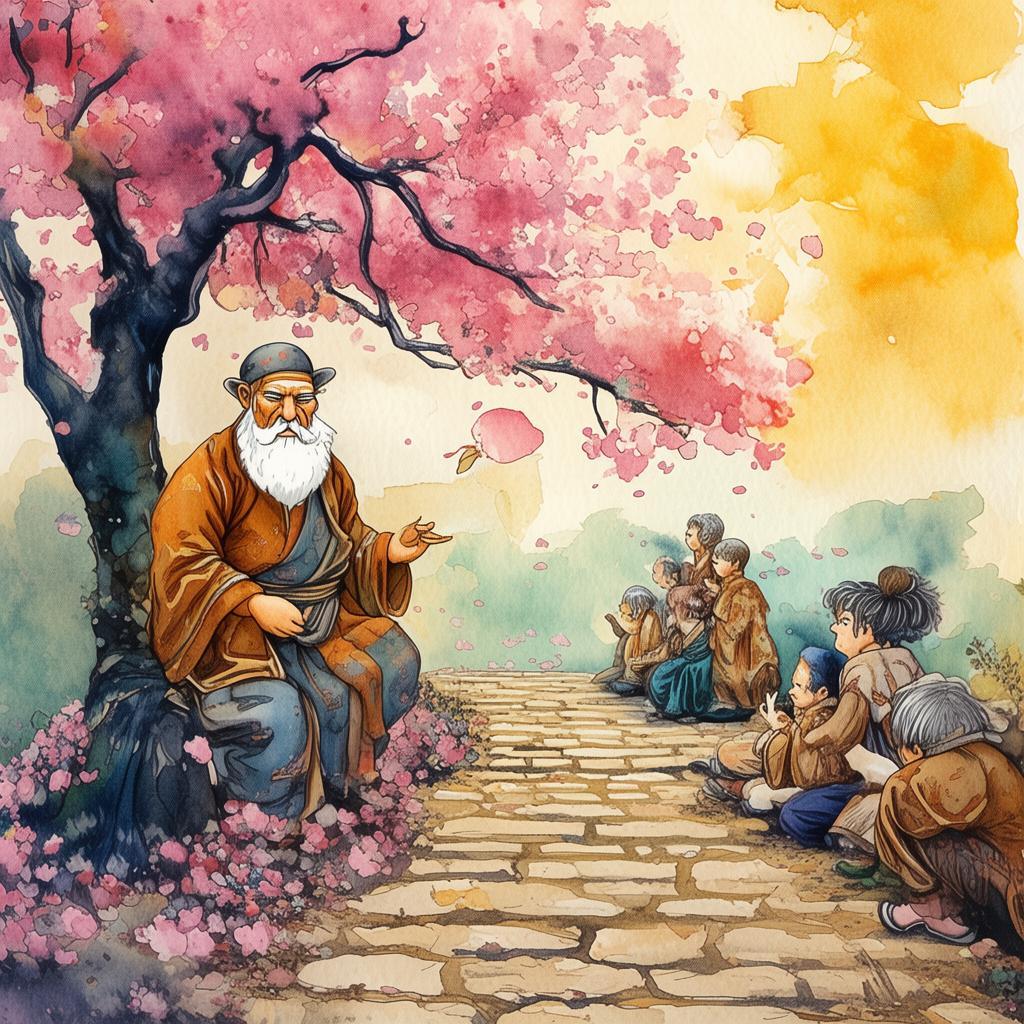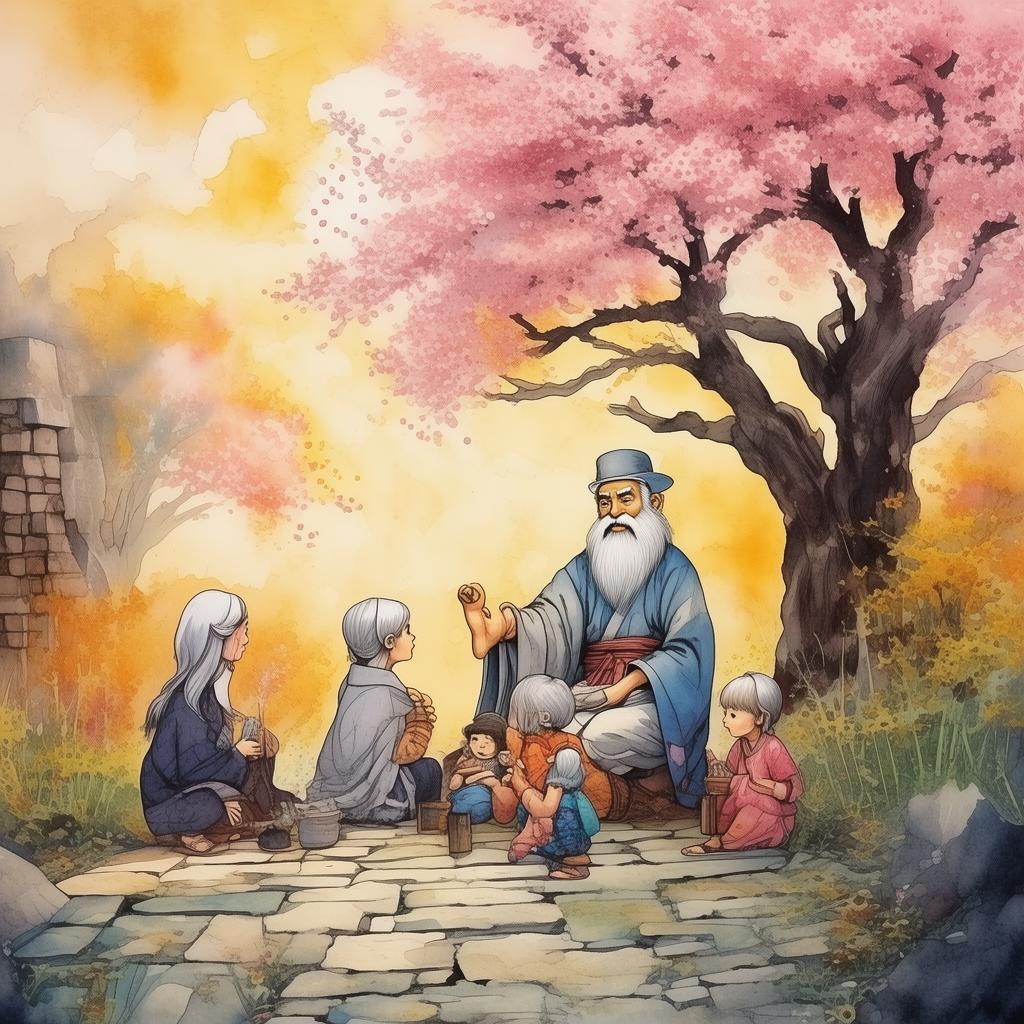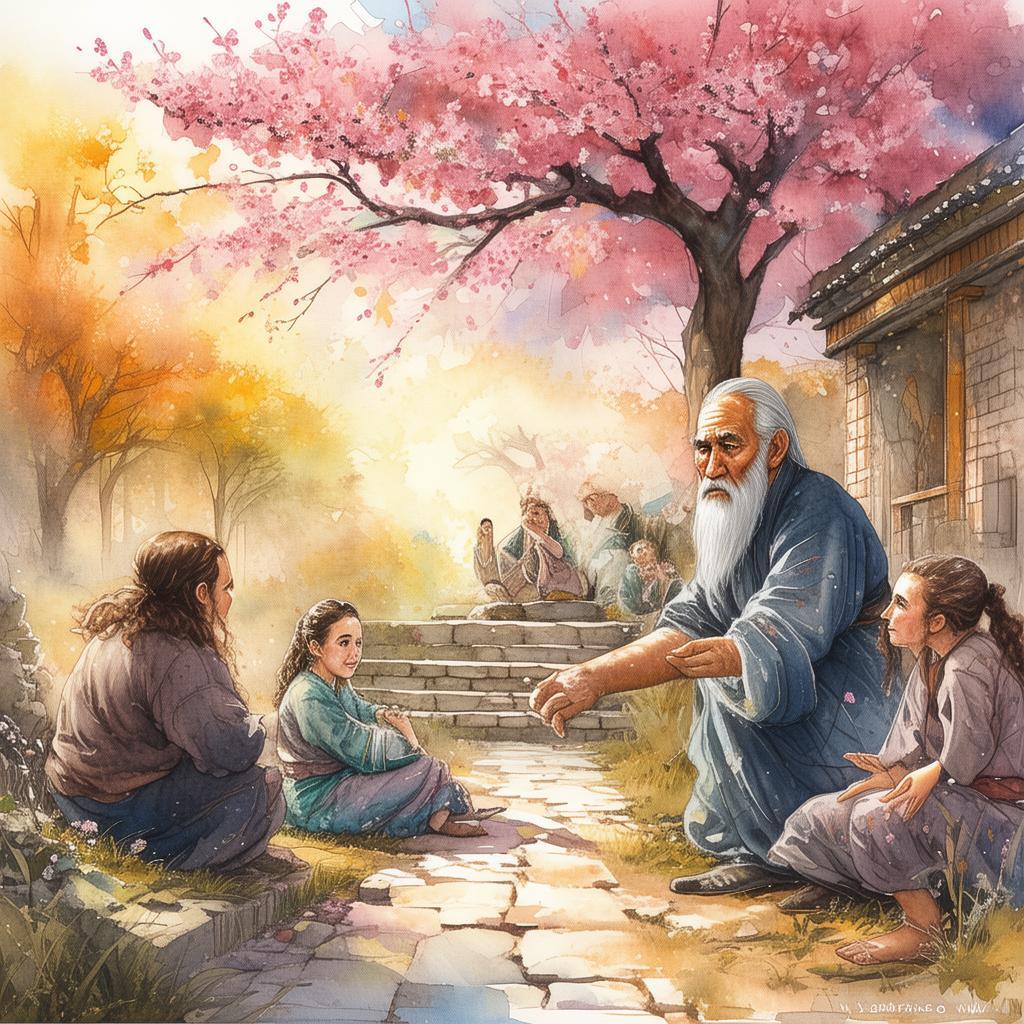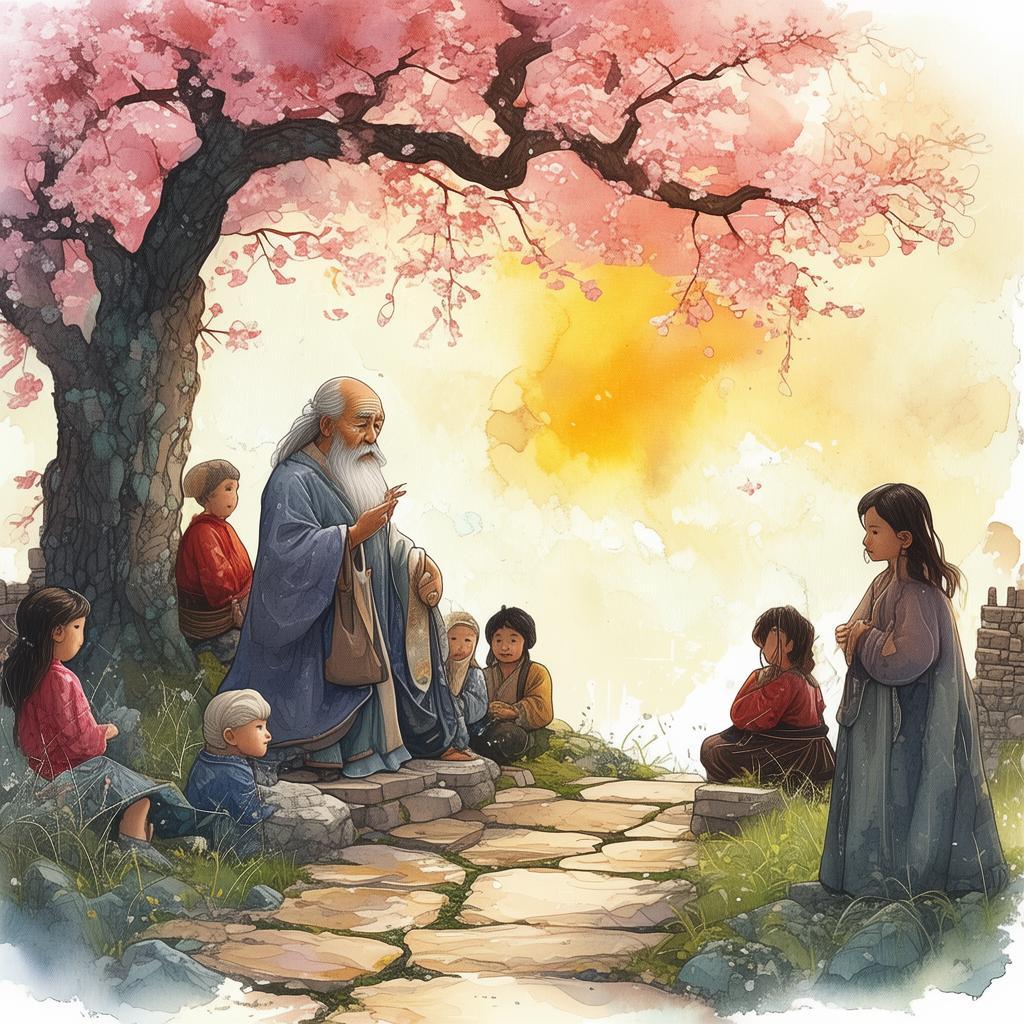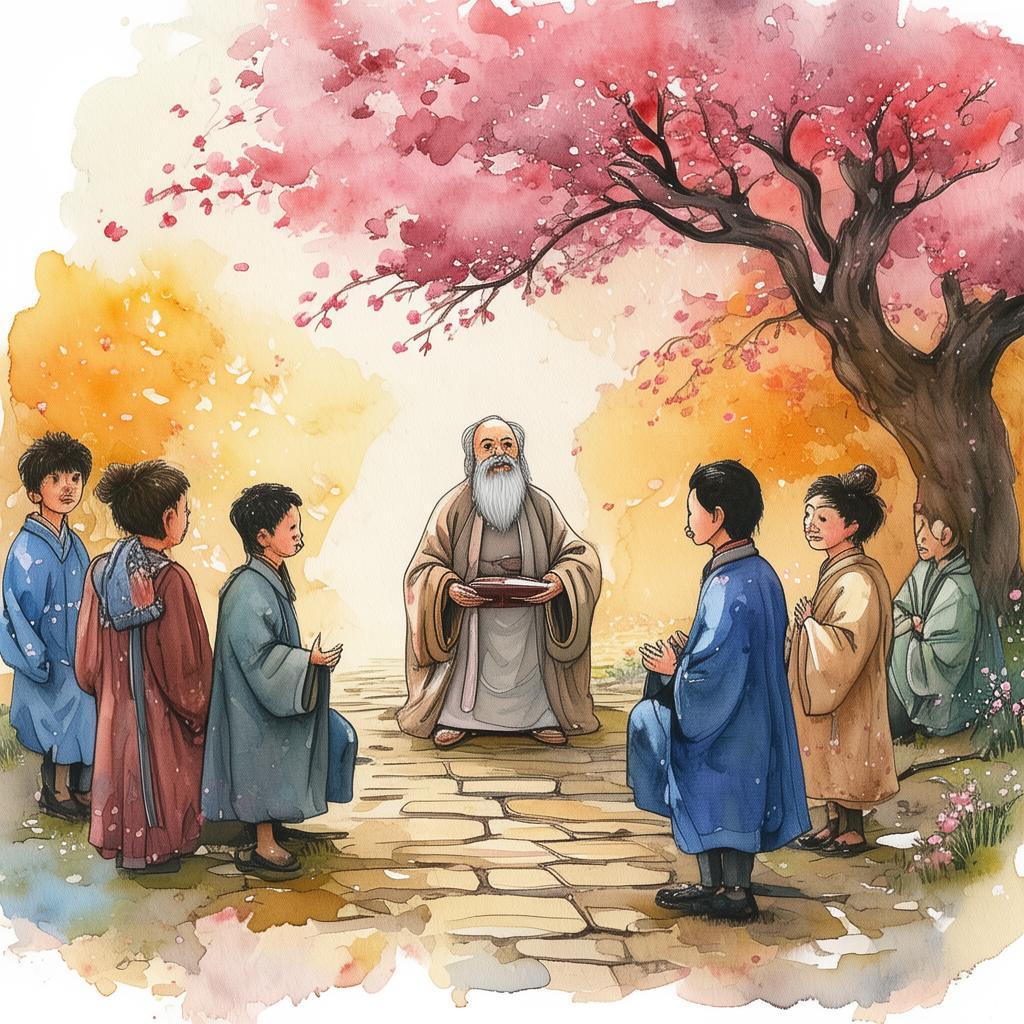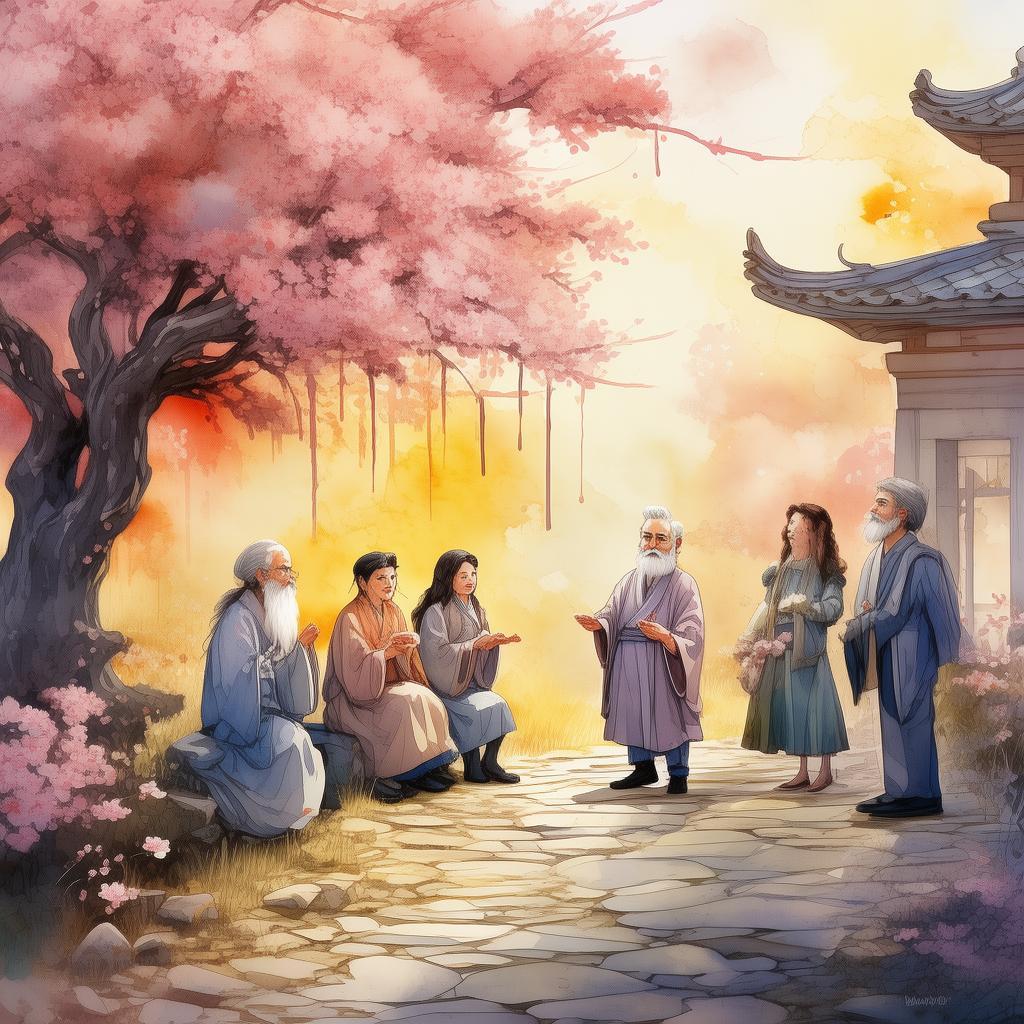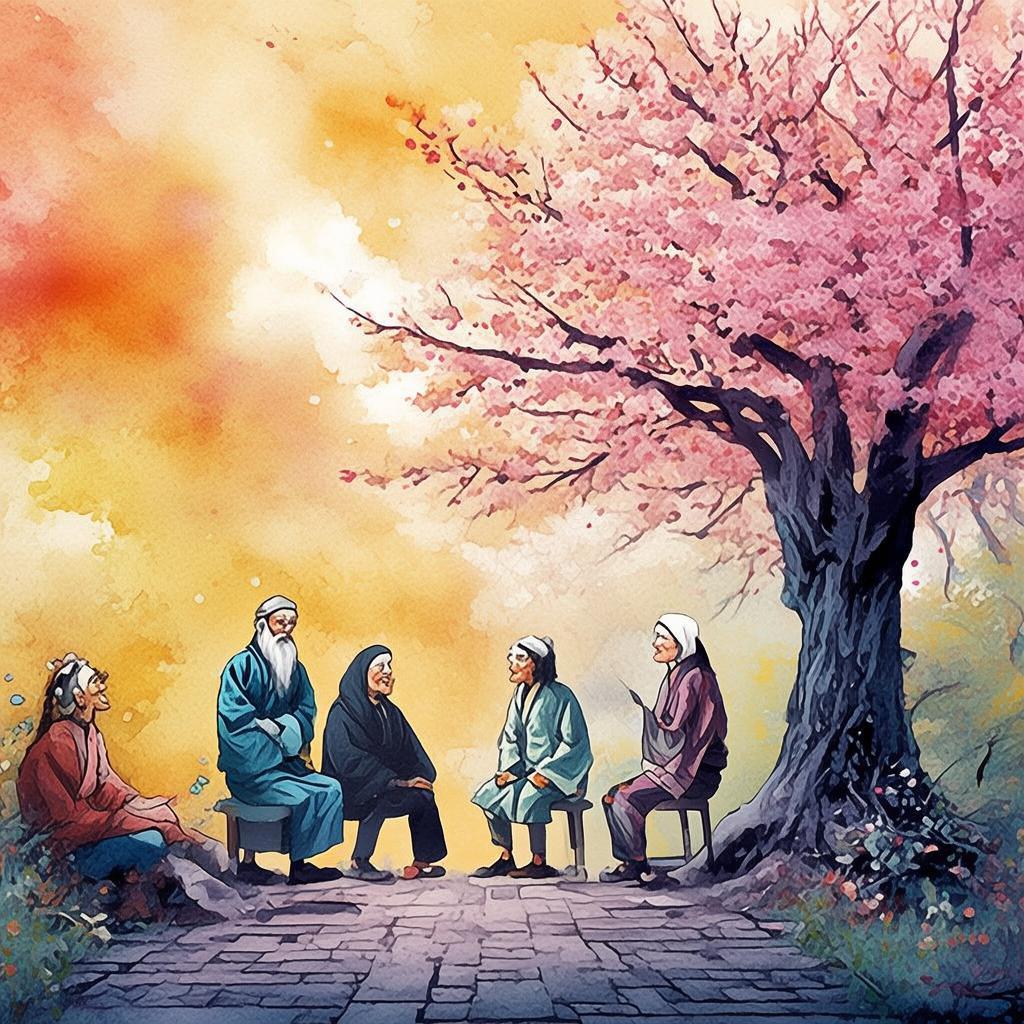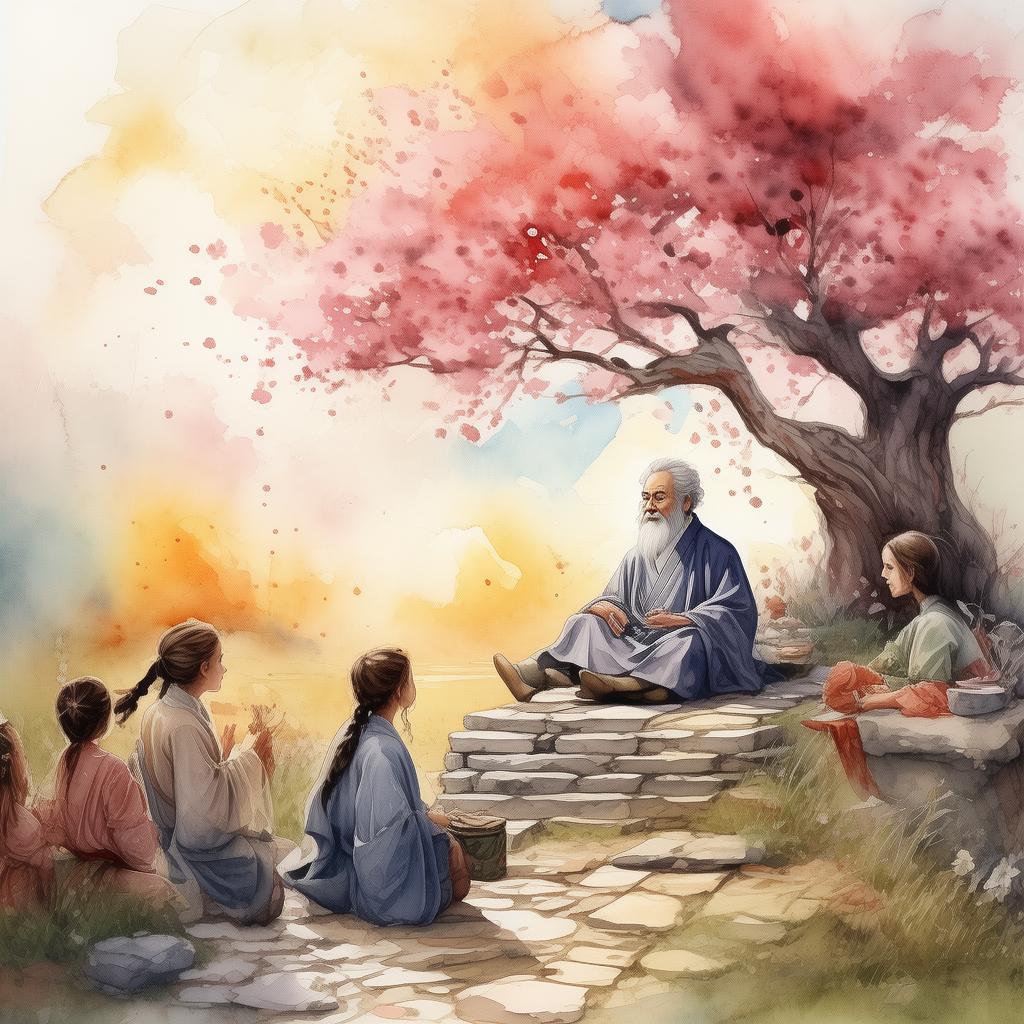The Unity of the Opposites: The Quest of the Warring Philosophers
In the heart of ancient China, where the mountains whispered secrets of the past and the rivers sang tales of the future, there thrived three of the most influential minds of their time: Confucius, Laozi, and Mozi. Each had their own unique philosophy, yet they all sought the truth of unity. The quest would not be easy, for their beliefs were as disparate as the stars in the night sky.
Confucius, a man of great wisdom and compassion, believed in the importance of moral conduct and the harmonious relationship between individuals and society. Laozi, the serene sage, advocated for the natural flow of life and the importance of living in harmony with the Tao, the Way. Mozi, on the other hand, was a proponent of universal love and the elimination of class distinctions.
The story begins with a mysterious scroll, said to contain the secret of unity, which was discovered in the ruins of an ancient temple. The scroll was divided into three sections, each corresponding to the philosophies of Confucius, Laozi, and Mozi. The philosophers, recognizing the significance of the scroll, agreed to embark on a perilous journey to retrieve it.
Their first challenge came in the form of a treacherous mountain pass, where the paths were riddled with pitfalls and the weather was as unpredictable as the fates themselves. Confucius, with his moral compass, led the way, emphasizing the importance of respect and kindness towards others. Laozi, serene as ever, followed, reminding them that the journey was as much about the path as it was about the destination. Mozi, ever the pragmatist, suggested that they should focus on practicality and efficiency.
As they ascended the mountain, they encountered a group of bandits, who were said to have taken the scroll for themselves. A fierce battle ensued, with Confucius using his teachings to calm the bandits, Laozi using his Taoist principles to outwit them, and Mozi using his persuasive arguments to convince them of the importance of unity. In the end, it was their combined efforts that led to the safe retrieval of the scroll.
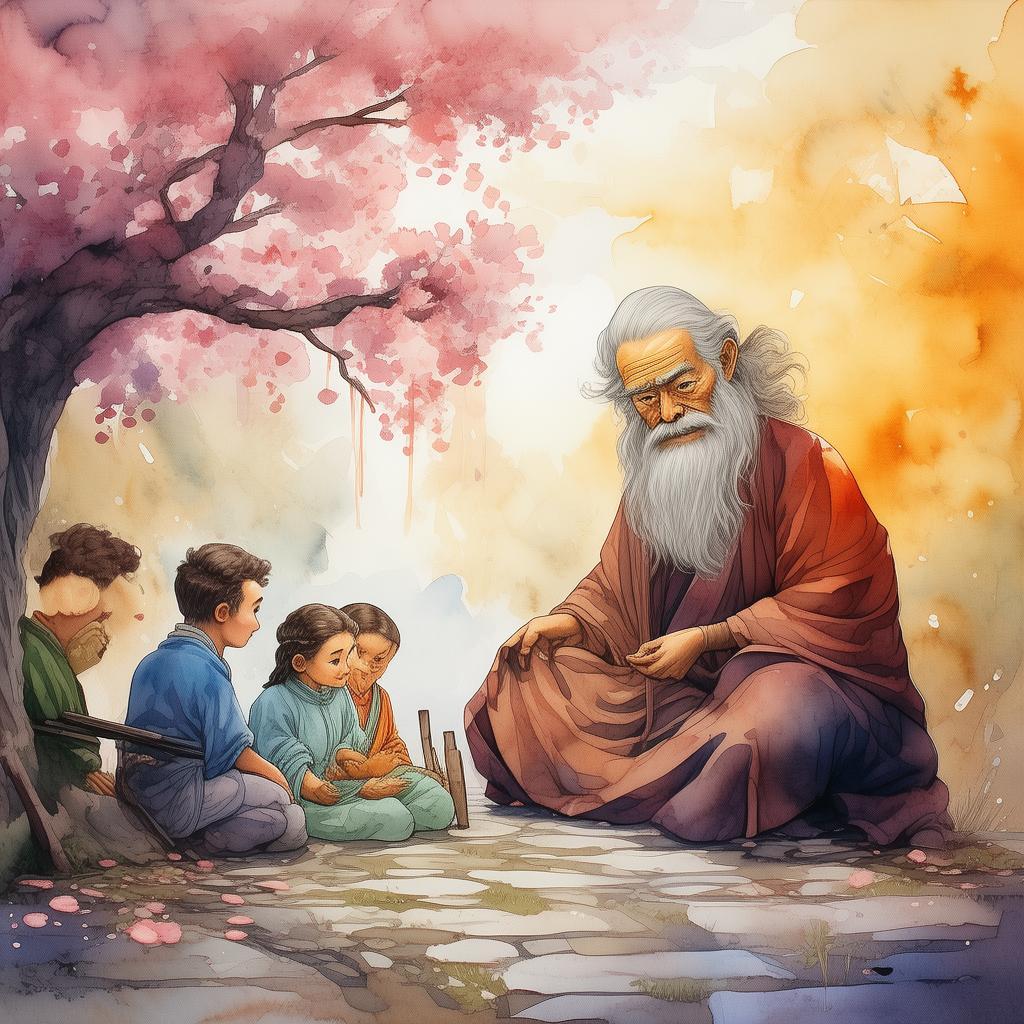
The next leg of their journey took them to a desolate desert, where they faced a choice: to continue on the path they had chosen, or to seek guidance from the spirits of the ancestors. Confucius was torn, as he believed that the ancestors had abandoned them. Laozi, however, suggested that they should listen to the whispers of the desert wind, which spoke of the unity of all things. Mozi, ever the optimist, argued that the ancestors would guide them if they were truly seeking the truth.
In the end, it was the desert wind that led them to an ancient well, where they found the scroll. As they read the words, they realized that the secret of unity was not in their differing philosophies, but in the acceptance of their differences. Confucius learned to embrace the natural flow of life, Laozi found the importance of moral conduct in the Tao, and Mozi understood that love could transcend class distinctions.
The philosophers returned to their respective communities, each carrying a piece of the scroll. They shared their experiences and teachings, and the people of China began to live in greater harmony. The quest for the truth of unity had not only brought them closer together but had also illuminated the path to a more peaceful world.
The story of the Warring Philosophers serves as a timeless testament to the power of unity in diversity. It teaches us that while we may have different beliefs and philosophies, it is through our differences that we can find common ground and create a world of harmony and understanding.
✨ Original Statement ✨
All articles published on this website (including but not limited to text, images, videos, and other content) are original or authorized for reposting and are protected by relevant laws. Without the explicit written permission of this website, no individual or organization may copy, modify, repost, or use the content for commercial purposes.
If you need to quote or cooperate, please contact this site for authorization. We reserve the right to pursue legal responsibility for any unauthorized use.
Hereby declared.
